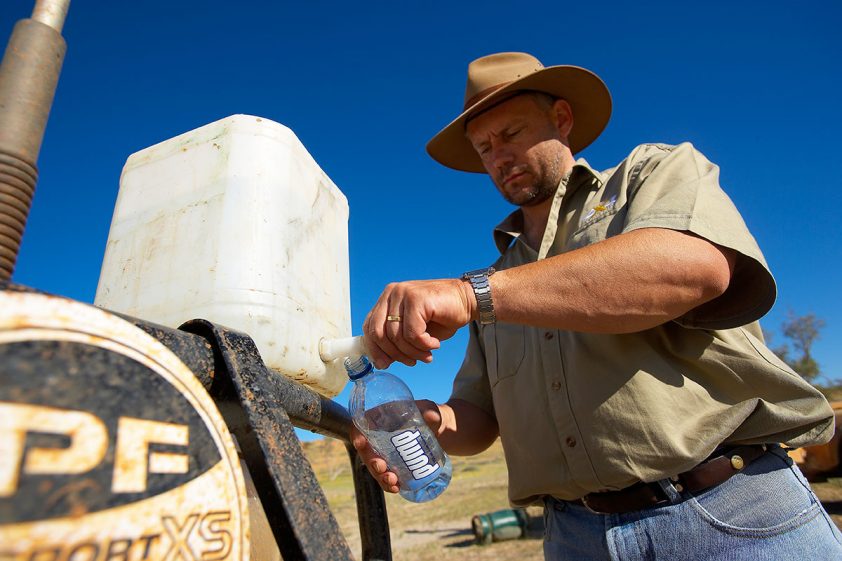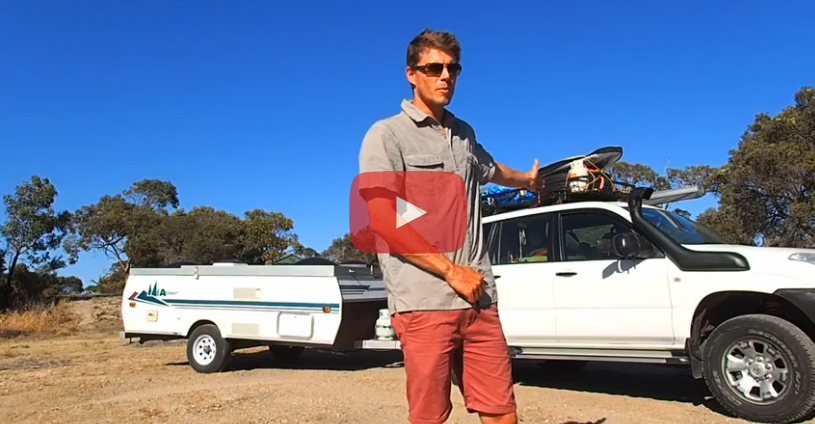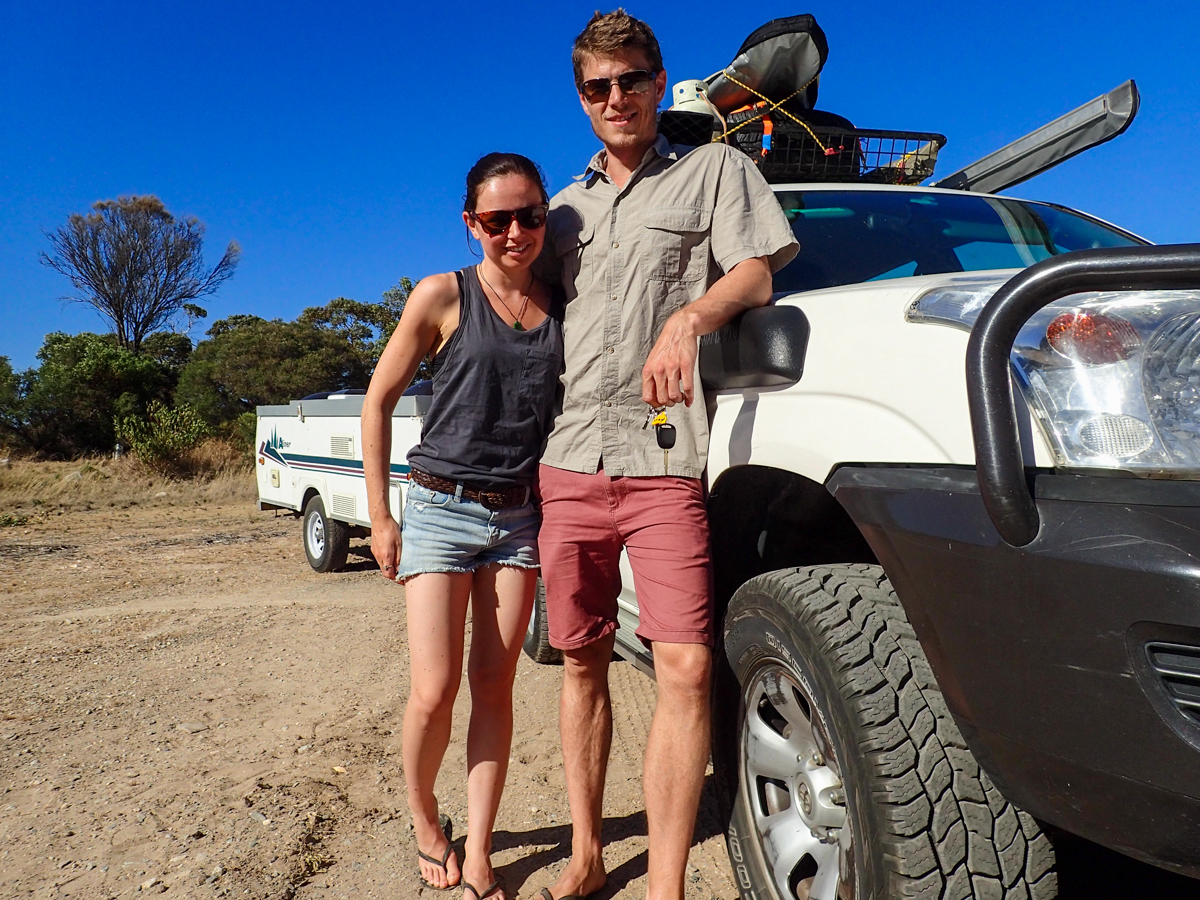Water is one of the most important substances on Earth. Quite simply, if there was no water there would be no life! All plants and animals must have water to survive, and it’s a vital nutrient needed for most body functions. Water also makes up more than two-thirds of our body weight, so it’s important to stay hydrated with contaminant-free water to maintain health and to prevent disease.

Thus it’s not surprising that water is a necessity when heading off-grid in a caravan or camper trailer as it’s not only utilised for drinking but also cooking, cleaning, eating, showering, washing clothes, and washing up cookware and utensils. And without attempting to be alarmist, running out of water while traversing Australia’s isolated territory can be life threatening.
So, what are the ‘tips and tricks’ to water storage while travelling around remote regions of the world’s driest inhabited continent where clean and reliable water supplies can be as scarce as hen’s teeth?
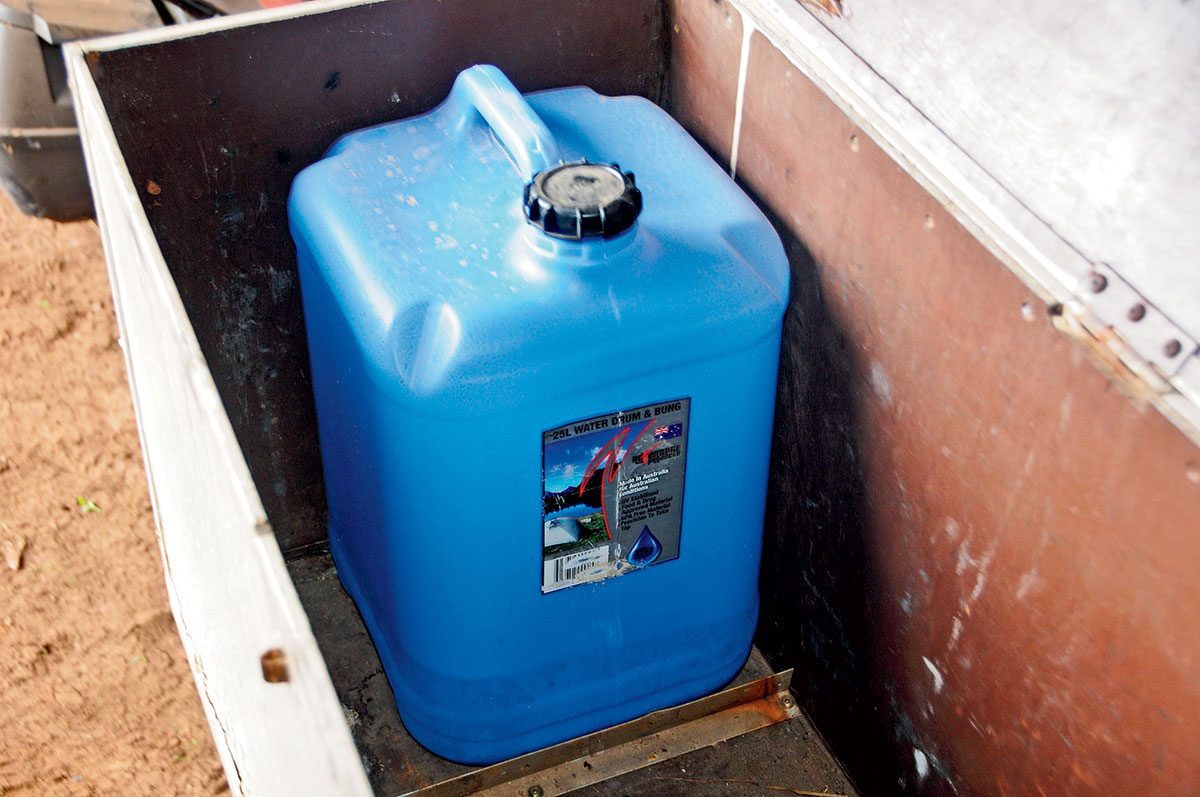
Water tanks and jerry cans are the most common form of storage, which leads to the imperative equation: how much is enough? You must also consider additional options for storage in your van and vehicle as water capacity can be totally depleted in a few days – taking into account other types of water consumption.
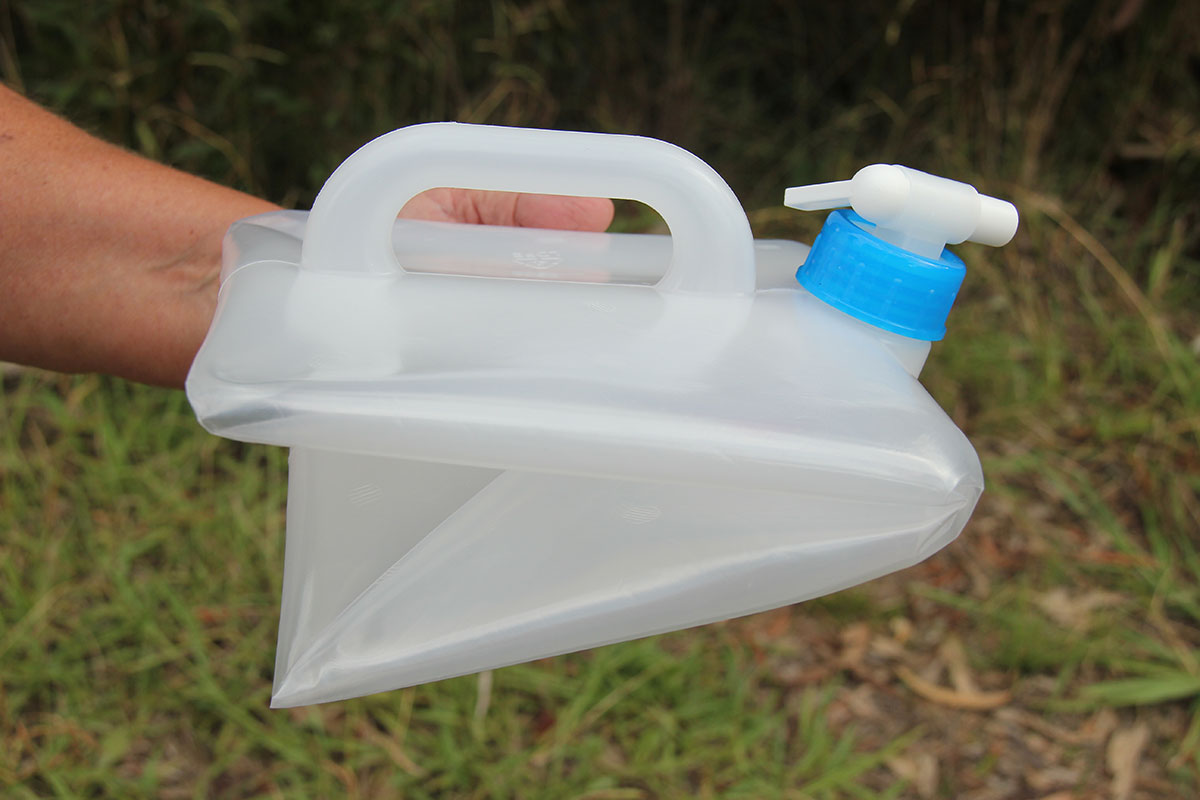
Many free campers will carry portable water containers such as water cubes, expandable water carriers, water bags, water storage drums, wide mouth water storage, collapsible water tanks (ideal for use in remote areas and while camping as a storage tank or for showering and washing up), and foldable water carriers. These containers can also prove handy in the correct disposal of grey water (discharge from sinks, showers, washing machines and the like) away from the campground – particularly if your van is not fitted with a grey water tank, or comprises an external shower facility.
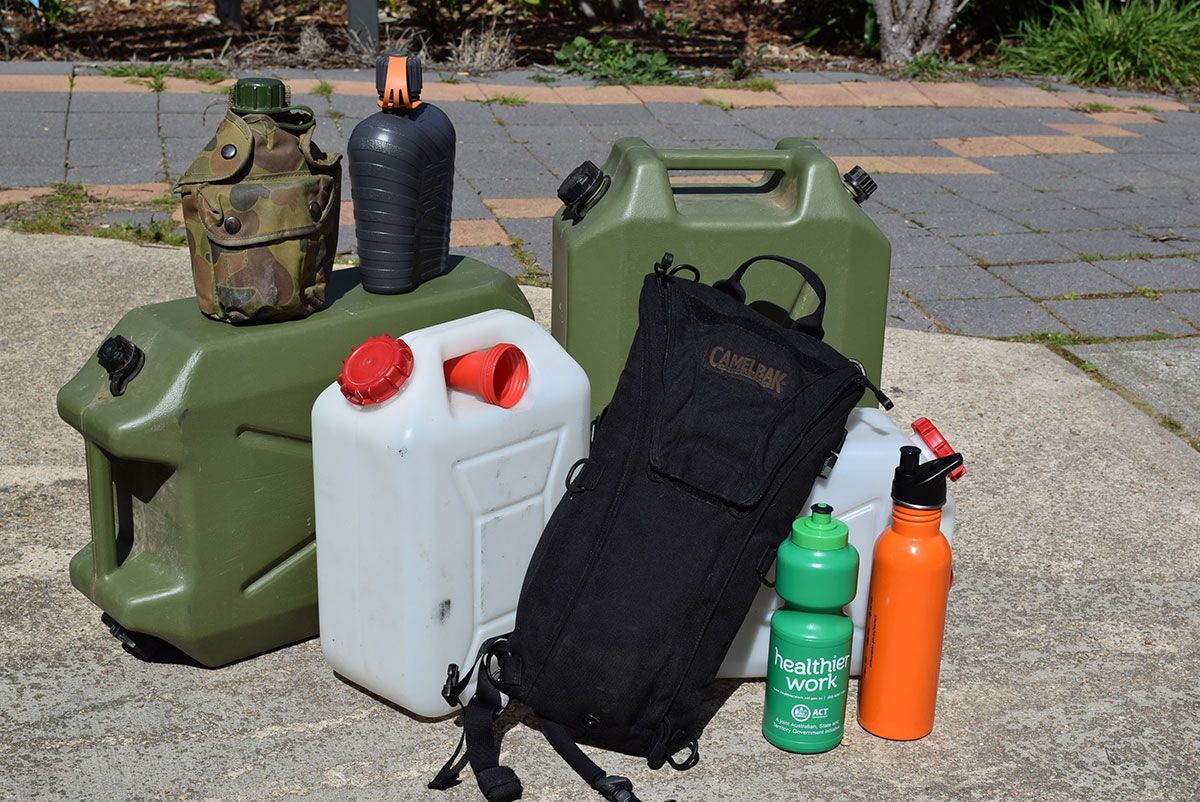
It’s also advisable to formulate a strategy for replenishing your water tanks while free camping. Supplementary water storage in your vehicle is also critical while out in the woop woops – particularly in emergency and survival situations. Subsequently many intrepid travellers, with a van in tow, will maintain an adequate water supply in the back of their 4WDs. They’ll also carry enough water should the vehicle overheat etc.
And many caravanners will use water storage containers designed for drinking water purposes while keeping the water as low as possible, including underneath the vehicle to minimise the centre of gravity.
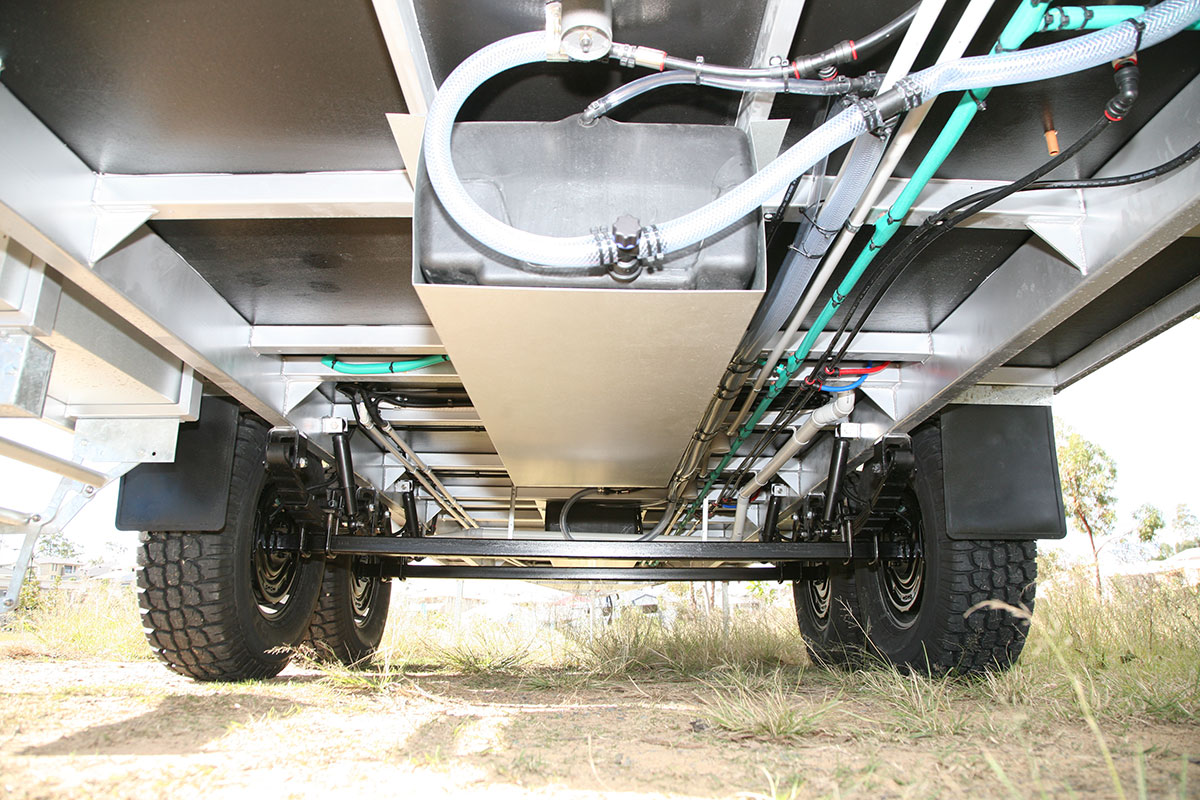
Various offroad vans now have creek draw facilities where they can draw water to a separate tank (grey water), where used water from a dishwasher, shower or washing machine can be disposed of in an environmentally sustainable location. Last but certainly not least is the prerequisite to have access to a fresh source of filtered water whatever your destination. Hence a compulsory reliance on inline water filters, water purifiers, desalinators and tablets. Clean and safe drinking water is obviously essential when camping.
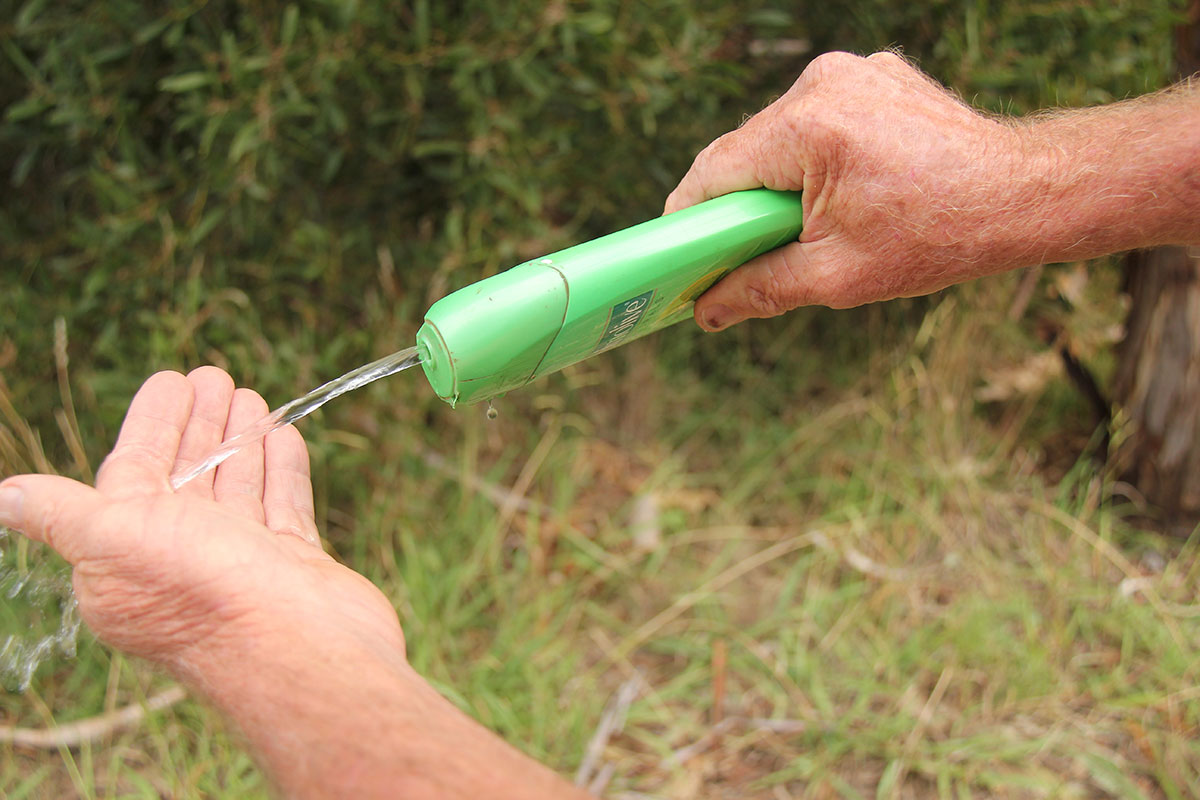
When off-grid, waterways can become contaminated from chemicals (eg. agricultural/mining areas), feral animals, and poor toilet habits from fellow campers. Protozoa, bacteria and viruses can cause a myriad of health problems while travelling. But camping water filters ‘trap’ most of the impurities, while camping water purifiers work to treat the water to eliminate or lessen the potency of bacteria etc.
MEET THE AUTHOR
Peter Quilty
With more than 30 years’ journalistic experience, Peter’s brief predominantly centres on editorial reviews for Caravan World and CamperTrailer Australia magazines.
A relative late starter to the trials and tribulations of the RV industry, Peter has been making up for lost time caravanning and camping with his family around Victoria. Initially, Gippsland was the primary stamping ground free camping in idyllic bush settings such as Dargo and Licola, beside the Wonnangatta and Macalister rivers respectively. Other favourite haunts also became ensconced on the family camping itinerary – Jamieson in Victoria’s High Country, Whitfield in the King Valley, Princetown on the Great Ocean Road, and Bright in the Ovens Valley.

